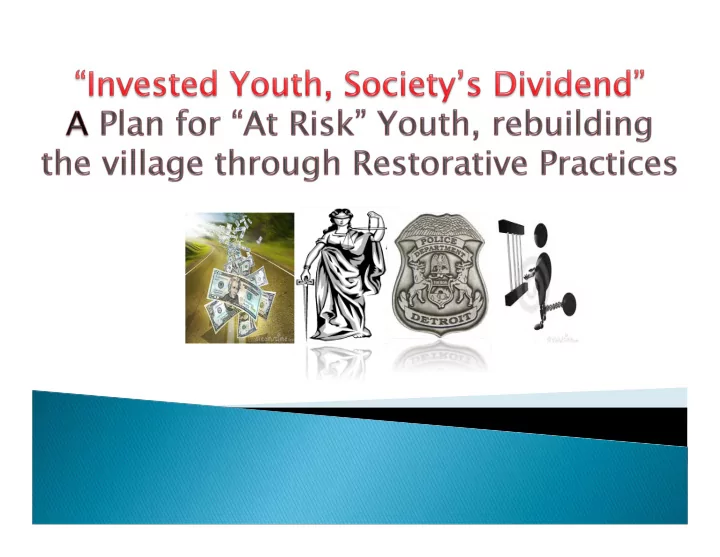

The fundamental hypothesis of restorative practices is that human beings are happier, more cooperative and productive, and more likely to make positive changes in their behavior when those in positions of authority do things with them, rather than to them or for them.
Policy Implications for Enabling Legislation Schools � Providing educational � No Child Left behind support (NCLB) � Programs for � Assistance for the suspended and parent/guardian expelled students � Community support � Opportunities for services academic enrichment
Advancement must see beyond the circumstance, a realm where the leader dwells but where the community has difficulty. The community sees what is; a leader is always looking for the what can be. It takes both qualities to get the fullness, required for a successful city. One without the other will succumb to mediocrity or failure. We need community to understand policing and we need to understand community. The leaders job is to give the community direction, vision, and encouragement. Regardless of how good we are, we will be ineffective without the communities support. Our success will be determined by the quality of citizens we engage. Discerning the quality and ability of people and using them appropriately; is imperative to healing the city and building the “New Enterprise”.
Priorities: It is our goal to decrease crime created by legalized truancy, by incorporating alternatives to exclusionary discipline. Roles: Our role is to enlist other partners and agencies to bridge the resources of law enforcement, education and other community groups.
• Engagement • Explanation • Expectation (W. Chan Kim & Renee Mauborgne, Harvard Business Review, July-August 1997)
How has today’s experience impacted you personally?
Recommend
More recommend